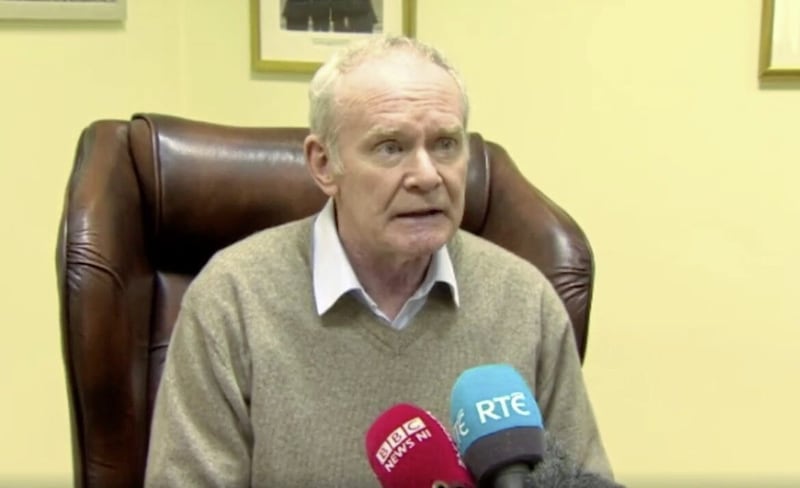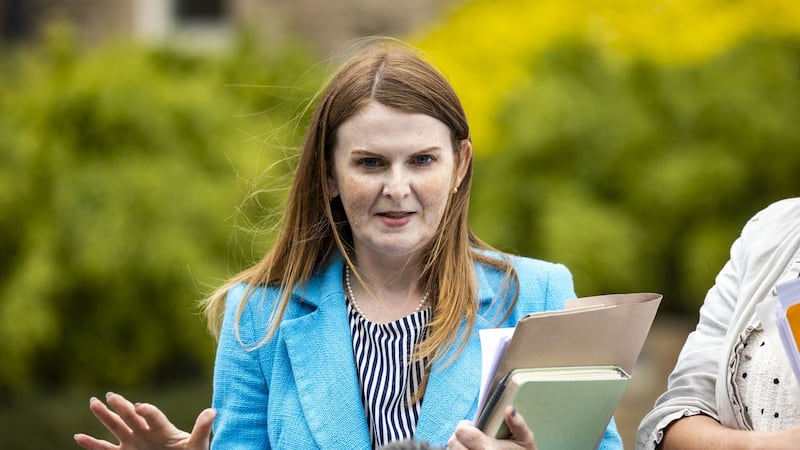On the basis that it’s never a wise move to disturb your electoral opponents while they’re making life easy for you and difficult for themselves, SF has been fairly relaxed over the last couple of years.
Fair enough, the party also knows that collapsing the assembly in January 2017 and forcing an early election paid dividends in both that election (when unionism lost its position as the overall majority) and in 2022, when it nudged past the DUP into the top dog position.
But amidst the growing clamour for reforms to prevent one party from toppling everything as and when it suits it – like SF did in January 2017 – it has also been fairly quiet. Until a couple of weeks ago, when Mary Lou McDonald (in an interview with the Business Post) said this: “I think the conversation about reform has to happen. But we need to be mindful that the bedrocks of power-sharing around parity of esteem and inclusion, that those foundations aren’t disturbed. The protections are in the system for a reason… I think that inclusion is still a very necessary part of politics north of the border. We need to have the conversation with our eyes wide open, and not throw out the baby with the bathwater.”

I wasn’t in the least surprised. I’ve said many, many times since the 2017-20 hiatus that neither the DUP nor SF would be prepared to decommission the most significant power at their disposal; the power to collapse the institutions and force negotiations on a wish-list of demands.
In the absence of that power they would simply be reduced to howling at the moon while the rest of the elected members continued with the business of government. And since they wouldn’t want that to happen – in case sensible, popular legislation was introduced – they would have to bite their tongues and just get on with what passes for business as usual.
Another reason they won’t relinquish the nuclear option veto is because their joint electorate – representing around two-thirds of the overall vote – wants them to retain it. They – their voters – don’t trust the other side enough and fear the consequences of unilaterally, or even jointly, letting go of a ‘safeguard’.
We know, too, that SF wasn’t damaged by collapsing in 2017 while, according to a run of LucidTalk polls, the DUP has seen its support rise from 13% to 28% on the back of its ongoing boycott.

It wasn’t meant to be like this, of course. When the Good Friday Agreement was signed off (although the DUP wasn’t a signatory) there was a hope that a point would be reached at which the parties would have learned, through cooperation and jointly agreed programmes of government, to trust each other.
The key to progress and stability is trust. There’s a long, long, long road to go
The Pollyanna wing of local optimism - most of which has since withered on the vine of bitter reality – once dared to dream that the ‘conflict parties’ would also be softened in tone by the emergence of new socio/economic coalitions not focused solely on the constitutional question.
The only obvious electoral growth area has been Alliance, yet the fact remains that around 70% of votes are still cast for parties with a clear position on the constitution. Alliance spooks the big two because both know that increased seat numbers mean its votes can swing a debate one way or the other. Which is another reason both will keep their nuclear veto: creating the irony that the veto is now regarded by SF and the DUP as a weapon against both ‘themmuns’ and ‘others’. After 25 years they’ve actually created a brand-new demographic division to fear.

I think some reforms are necessary and probably capable of majority approval. But for so long as a form of nuclear veto remains – either the present one, or a reworking of the weighted majority option – then collapse will still be possible; either by one party or one community bloc. The key to progress and stability is trust. There’s a long, long, long road to go.



